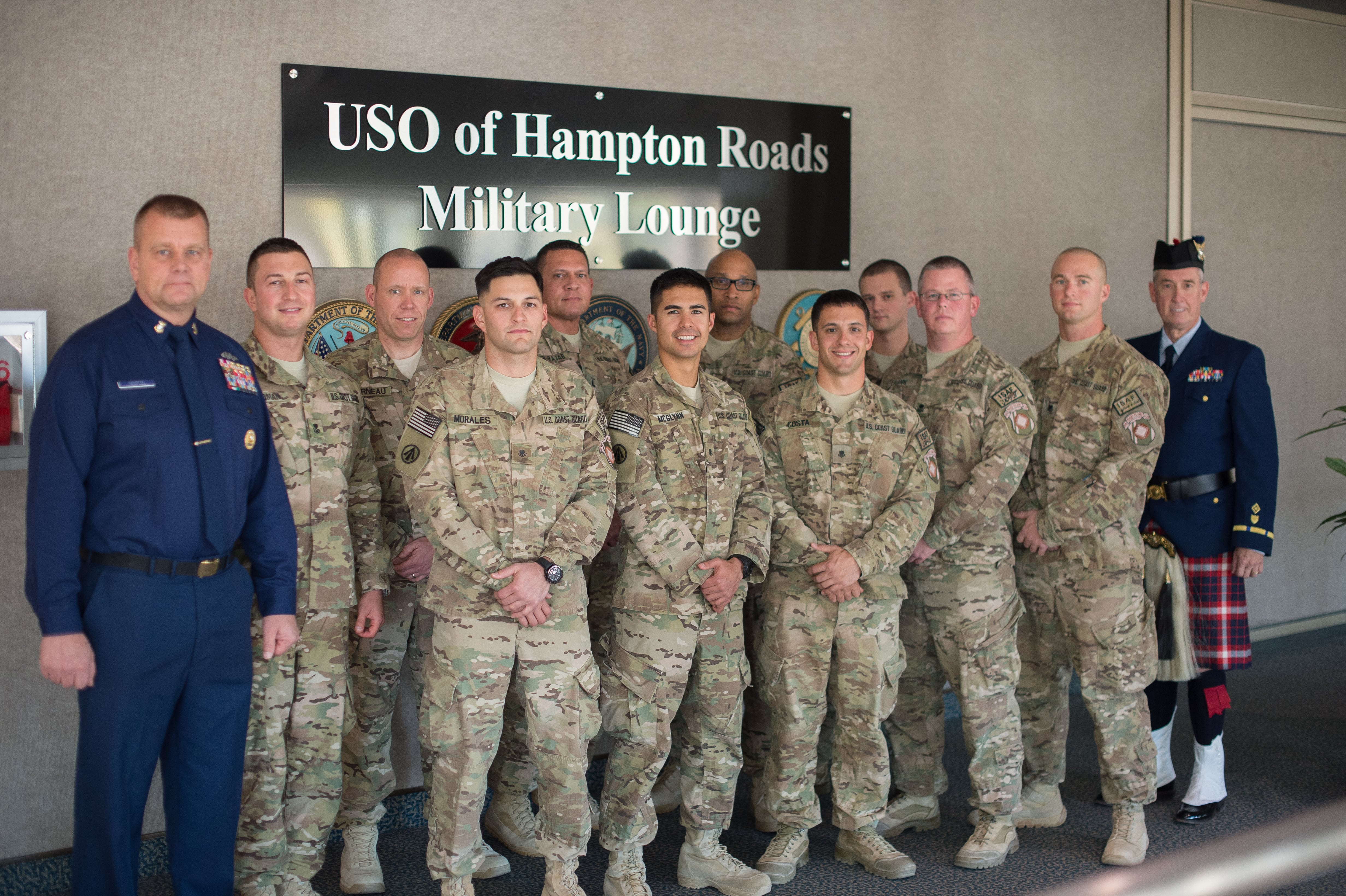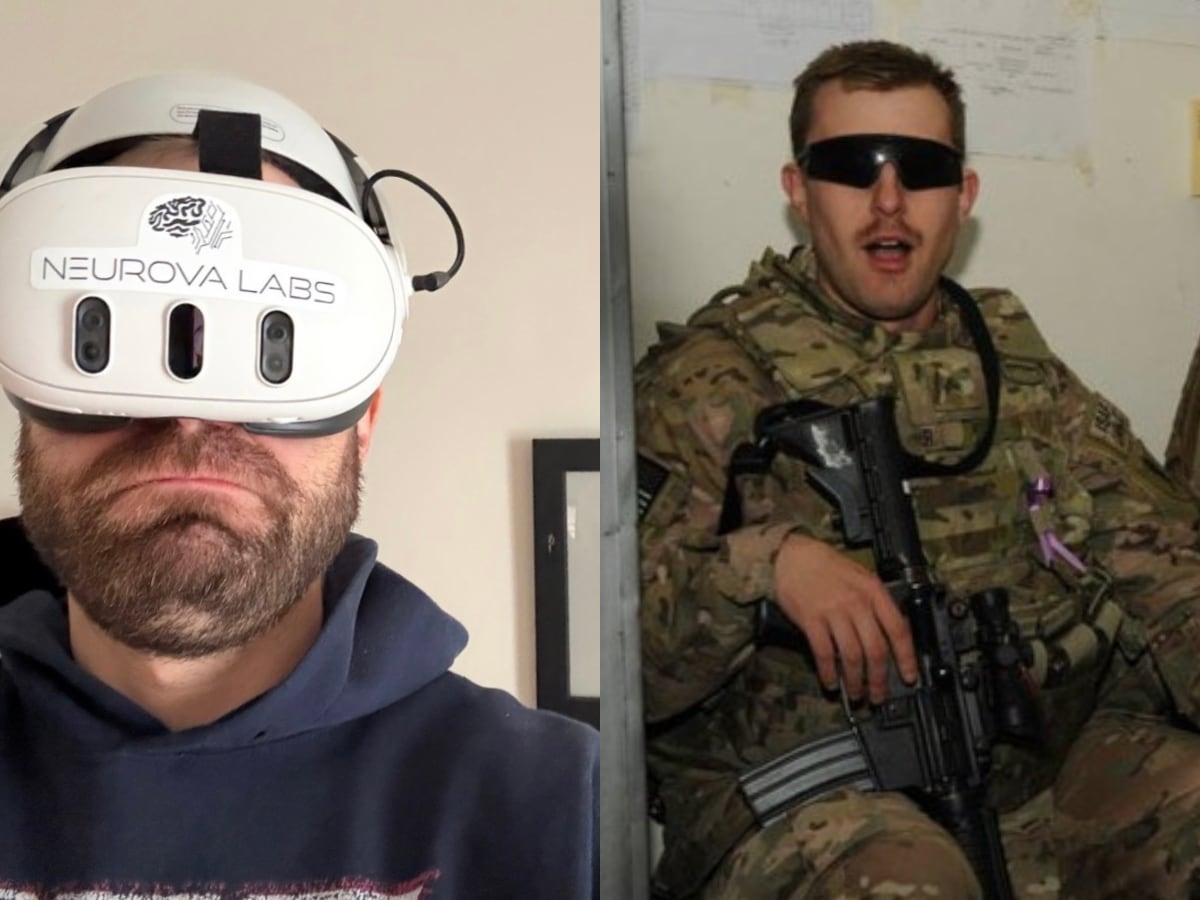There aren't many jobs in the Coast Guard that require deployment to the 'Stan, but members of the Redeployment Assistance and Inspection Detachment did just that for the past 12 years.
As the U.S. military draws down in Afghanistanthat country, the Coast Guard's mission ended May 11 when the last 14 members of the team returned home to Portsmouth, Virginia.
"Probably about two hours after we landed, everybody's going, 'Is it crazy how green everything is?' " the unit's commanding officer told Navy Times the day after they touched down.
Lt. Cmdr. Stephen Thompson spent 11 months in the dry, scrub brush landscape of Afghanistan with his team, helping the Army's 831st Transportation Battalion pack up their weapons, gearequipment and hazardous chemicals for shipment back to the U.S.
"Until their gear is all packed up, they don't get to go home," Thompson said. "Being able to help Marines and soldiers, allowing them to go home, to me that was one of the biggest things."
More than 250 active duty and reserve Coasties have shipped over to Iraq and Afghanistan to help the other services ship home since 2003, at the Army's request.
In Iraq alone, they inspected 20 percent of the Army's shipping containers, containing more than 2.2 million pieces of equipment.

Members of the RAID team returned from a deployment on Nov. 19. The mission was stood down May 11, when the last members of the unit returned home.
Photo Credit: Petty Officer 2nd Class Walter Shinn/Coast Guard
Anywhere from 15 to 40 team members would deploy in each rotation, some based in Kuwait while others spread out to forward operating bases in Afghanistan like Kandahar and Bagram airfields and Camp Leatherneck in Helmand province.
The other services were capable of doing the job, RAID's program manager said, but the Coast Guard's expertise with anything that might explode or catch fire on a container ship made a difference.
Before RAID showed up, the Army was having trouble properly marking up its containers for shipping, and it was costing money to store them in staging yards while the logistics were sorted out.
"When they got the Coast Guard RAID personnel to assist, they greatly reduced the amount of frustrated cargo," Capt. Andrew McKinley told Navy Times.
The all-volunteer team came from across the rating spectrum, he said, though recently it was mostly made up of marine science technicians, with the necessary chemical, biological and radiological training and in good physical shape.
Deployments lasted about a year, with weeks of Army training thrown in to prepare for a combat zone.
"There were times in which the personnel would get [to a work site] there on land convoy, so they had to be familiar with land tactics and different types of Army vehicles," McKinley said.
Transportation was the biggest challenge, he added. When the team traveled by helicopter, there were always more people than available flights back, so members could be stranded at more remote outposts for several days.
But for Thompson, getting his chance to support the fight was worth it.
"The Coast Guard, we're not out there as the war fighters, we're not busting down doors," he said. "But this was our part to be able to help the war effort and get people home."
At times there were only a handful of Coasties at each base, and they didn't really interact much with Marines or soldiers until units were getting ready to redeploy.
"For them it was always like, 'We can't believe you guys are out here,' " he said, "Even though we've been in Iraq and Afghanistan for 10 years."
Thompson first heard about RAID when he was still an enlisted member in the early 2000s, but it was a Reserve-only job until 2010.
"When I was finishing up my last tour in Baltimore, we were looking to stay in the area, and I said, 'You know, this may be my last opportunity to do something like this, ever,' " he said.
When team members deployed in spring 2014, they had no idea it would be the unit's last rotation.
By October, troops had drawn down from about 60,000 to 9,000, Thompson said, and the work load was slowing. That's when the decision came to shut down RAID.
"There are a lot of people that, this was the one chance to be able to go and do something with the [Defense Department] DoD in Afghanistan," he said. "With it shutting down, I think it was more people that were upset out it than happy that it was going away."
It hit particularly hard for the reservists, he said, who are going back to their day jobs, while the active-duty members are recycling back into their ratings.
Thompson is going back to vessel inspection and investigation at Sector Baltimore, Maryland, but said he'd raise his hand again if a new RAID team stood up.
"For me, I was in the Coast Guard when 9/11 happened," he said. "This was my one chance to be able to feel like I was a part of the war effort."
The mission was obviously not going to last forever, McKinley said, but it was a job well done.
"There's a certain amount of pride ins going to an unusual part of the world where it's dangerous," he said. "For those that have been able to take part in it over the year, it's been a very interesting part of their career."
Meghann Myers is the Pentagon bureau chief at Military Times. She covers operations, policy, personnel, leadership and other issues affecting service members.





